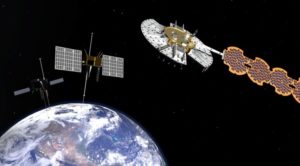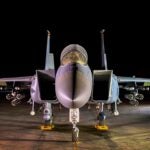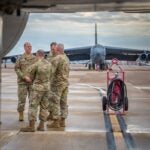
An Air Force program meant to demonstrate new precision navigation and timing satellite technologies has passed its preliminary design review (PDR), industry partner L3Harris Technologies [LHX] said Feb. 5. The Navigation Technology Satellite-3 (NTS-3) program passed PDR just over one year after Harris Corp. won an $84 million contract to be the prime integrator for NTS-3 in December 2018. L3 Technologies and Harris merged in July 2019. “We have moved from contract award to finishing an early design review in…

 By
By 










